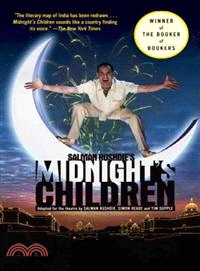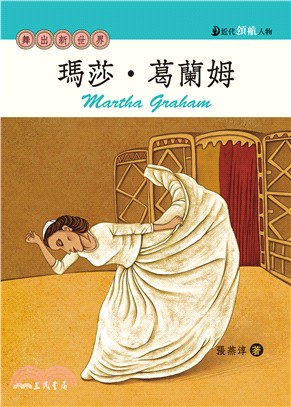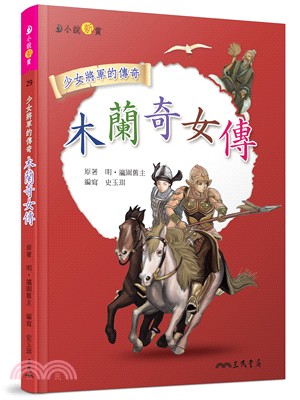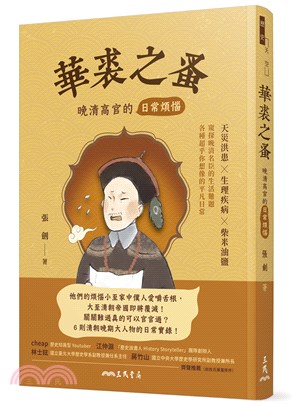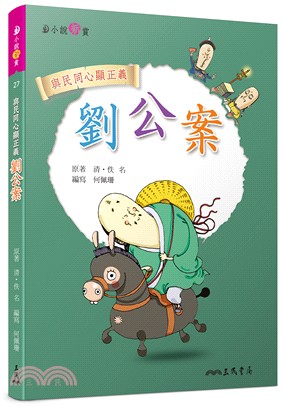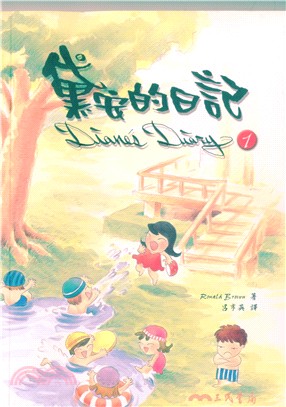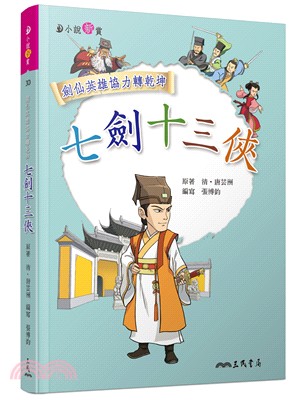Salman Rushdie's Midnight's Children
商品資訊
ISBN13:9780812969030
出版社:Random House Inc
作者:Salman Rushdie
出版日:2003/06/19
裝訂/頁數:平裝/126頁
規格:20.3cm*13.3cm*1.3cm (高/寬/厚)
商品簡介
作者簡介
相關商品
商品簡介
1. Midnight's Children is clearly a work of fiction; yet, like many modern novels, it is presented as an autobiography. How can we tell it isn't? What literary devices are employed to make its fictional status clear? And, bearing in mind the background of very real historical events, can 'truth' and 'fiction' always be told apart? 2. To what extent has the legacy of the British Empire, as presented in this novel, contributed to the turbulent character of Indian life? 3. Saleem sees himself and his family as a microcosm of what is happening to India. His own life seems so bound up with the fate of the country that he seems to have no existence as an individual; yet, he is a distinct person. How would you characterise Saleem as a human being, set apart from the novel's grand scheme? Does he have a personality? 4. 'To understand just one life, you have to swallow the world ... do you wonder, then, that I was a heavy child?' (p. 109). Is it possible, within the limits of a novel, to 'understand' a life? 5. At the very heart of Midnight's Children is an act of deception: Mary Pereira switches the birth-tags of the infants Saleem and Shiva. The ancestors of whom Saleem tells us at length are not his biological relations; and yet he continues to speak of them as his forebears. What effect does this have on you, the reader? How easy is it to absorb such a paradox? 6. 'There is no escape from form' says Saleem (p. 226); and later, he speaks of his own 'overpowering desire for form' (p. 317). Set against this is the chaos of Indian life which is described in such detail throughout the book. How is this coherence achieved? What role does mythology play in giving form to events in the novel? 7. 'There is no magic on earth strong enough to wipe out the legacies of one's parents' (p. 402). Saleem is speaking here of an injury; but has he inherited anything more positive? Is there anything inherited which aids rather than hinders him? 8. Saleem's father says of Wee Willie Winkie, 'That's a cheeky fellow; he goes too far.' The Englishman Methwold disagrees: 'The tradition of the fool, you know. Licensed to provoke and tease.' (p. 102). The novel itself provokes and teases the reader a good deal. Did you feel yourself 'provoked'? Does the above exchange shed any light on Rushdie's own plight since The Satanic Verses ? 9. How much affection is there between fathers and sons in Midnight's Children ? Why is Saleem so drawn to father-figures? What does he gain from his many adopted fathers? 10. 'What is so precious to need all this writing-shiting?' asks Padma (p. 24). What is the value of it for Saleem? 11. '...is not Mother India, Bharat-Mata, commonly thought of as female?' asks Saleem; 'And, as you know, there's no escape from her' (p. 404). Elsewhere he speaks of '...the long series of women who have bewitched and finally undone me good and proper' (p. 241). To what extent are women 'held for blame' for Saleem's misfortunes? 12. Saleem often appears to be an unreliable narrator, mixing up dates and hazarding details of events he never witnessed. He also draws attention to his own telling of the story: 'Like an incompetent puppeteer, I reveal the hands holding the strings...' (p. 65). How much faith do you put in his version of events? 13. Saleem pleads, '...believe that I am falling apart.' (p. 37); he never arrives at a certain image of himself without being thrown into chaos again (e.g. p.164-165). But a child on an advertising hoarding is described as 'flattened by certitude' (p. 153). Is there, then, value in uncertainty? What is it? 14. With the birth of Saleem's giant-eared son, history seems about to repeat itself; but Saleem senses that this time round, things will be different. How have circumstances changed? 15. Midnight's Children is a novel about India, and attempts to map the modern Indian mind, with all its contradictions. In your discussions, how much difficulty have you had in addressing the novel from a Western perspective? Is there an 'otherness' which makes it hard to assimilate, or are the novel's concerns universal and easily understood?
作者簡介
Salman Rushdie was born in 1947 and has lived in England since 1961. He is the author of six novels: Grimus, Midnight’s Children, which won the Booker Prize in 1981 and the James Tait Black Prize, Shame, winner of the French Prix du Meilleur Livre Etranger, The Satanic Verses, which won the Whitbread Prize for Best Novel, Haroun and the Sea of Stories, which won the Writers’ Guild Award and The Moor’s Last Sigh which won the Whitbread Novel of the Year Award. He has also published a collection of short stories East, West, a book of reportage The Jaguar Smile, a volume of essays Imaginary Homelands and a work of film criticism The Wizard of Oz. His most recent novel is The Ground Beneath He
主題書展
更多
主題書展
更多書展今日66折
您曾經瀏覽過的商品
購物須知
外文書商品之書封,為出版社提供之樣本。實際出貨商品,以出版社所提供之現有版本為主。部份書籍,因出版社供應狀況特殊,匯率將依實際狀況做調整。
無庫存之商品,在您完成訂單程序之後,將以空運的方式為你下單調貨。為了縮短等待的時間,建議您將外文書與其他商品分開下單,以獲得最快的取貨速度,平均調貨時間為1~2個月。
為了保護您的權益,「三民網路書店」提供會員七日商品鑑賞期(收到商品為起始日)。
若要辦理退貨,請在商品鑑賞期內寄回,且商品必須是全新狀態與完整包裝(商品、附件、發票、隨貨贈品等)否則恕不接受退貨。



